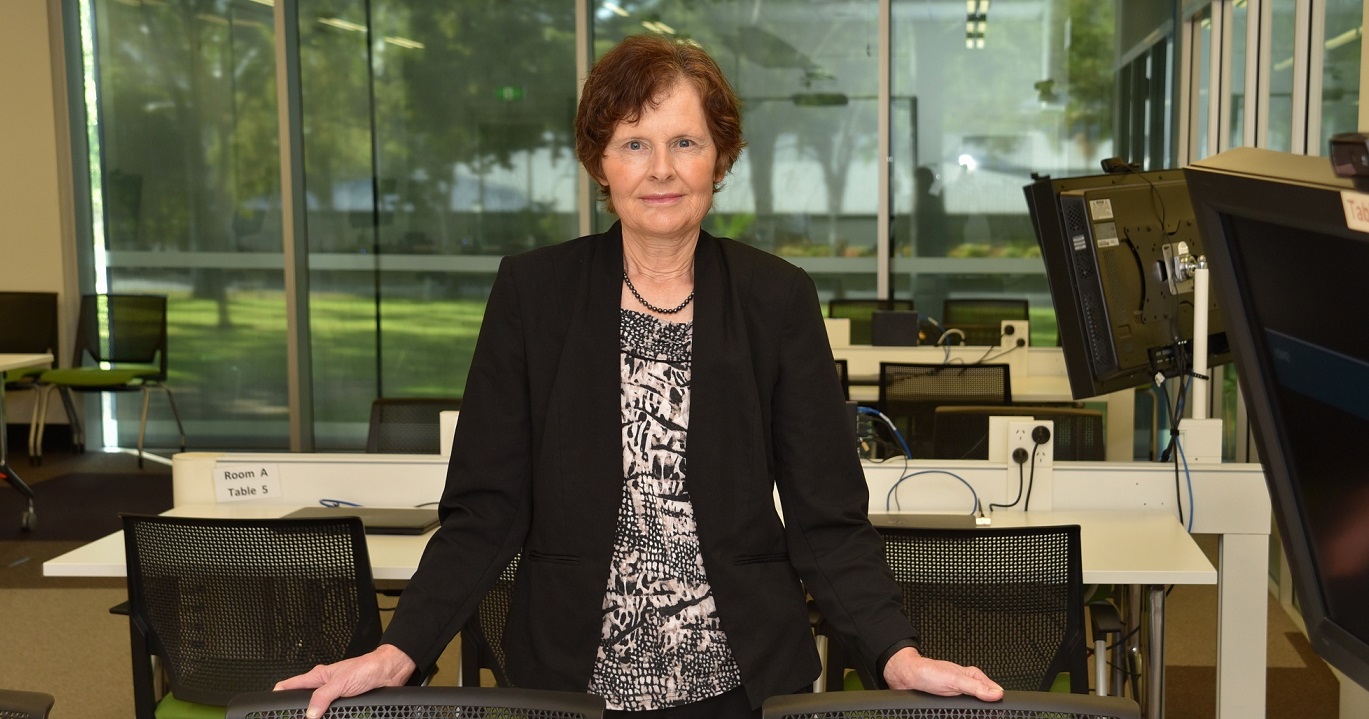Welcome to our Innovator Series that showcases some of Australia’s innovators, and movers and shakers, in and around ICT.
This week, Information Age speaks to Professor Denise Wood.
A 20-year career working across the disability sector does not seem like a launching pad into the world of technology research, but for Professor Denise Wood it was a logical progression.
The Professor and Director of Learning, Equity, Access and Participation at Central Queensland University holds a deep passion for global design, and use of inclusive technologies to enhance the educational and social participation of young people from special equity groups.
This vision is one that came to her in her extended stint in the disability sector, where she worked in many roles, including as CEO of not-for-profit OptCom Multimedia.
“I’ve always enjoyed working in the IT area, it was my first love,” says Wood.
“But I became interested in the educational opportunities when I worked at what is now Novita Children’s Services, where it was really the early days of desktop computing.
“This is when the I had realisation that those new technologies had a lot to offer when combined with assistive technologies and rehabilitation engineering.”
The love story has continued, with Wood establishing herself as a key figure in the intersection between innovative technologies and disability pedagogy, leading projects from South Australia to South Africa.
Her research is eclectic, with topics including education, disability studies, social work and assistive technologies. However, it is the innovative use of technology that has underpinned all that she’s done.
Recently recognised through her appointment as Member (AM) in the General Division of the Order of Australia, Wood has taken this passion for innovative teaching and learning, and used it to create more opportunities for marginalised youth and a more inclusive Australia.
She is the recipient of more than $6 million in government grants for her projects and has been published in more than 90 peer-reviewed publications.
But for Denise, success is defined by seeing her ideas come to fruition.
“It’s the vision. My main achievement is in seeing the opportunities, grasping them and being fortunate enough to have many people share that vision and want to make it a possibility.”
Her most recent success? A series of nationwide tech hubs that provide young people with Autism Spectrum Disorders the opportunity to learn about digital technologies and develop personal skills.
The Digital Enterprise: Pathways to Education and Employment for Young People with disabilities project, which ran from October 2014 to December 2015, allowed students to set personalised goals in the shape of tech-projects, including video games, music speakers and web designs.
Older students were also given formal training, with the opportunity to complete a Certificate IV in Entrepreneurship and Venture Creation.
“It was largely around recognising that a lot of young people with disabilities who may be disengaged from school would benefit from drop-in centres, which were essentially tech hubs.”
Although the findings are still pre-publication, Wood saw first-hand the impact the program made for these youths.
“The vast majority of the young people reported that it changed their outlook on future opportunities, they met friends, and it gave them a whole new outlook on life.”
Following the completion of this project, Wood and her team shifted focus to their current project: Digital Arts, a similar initiative funded by the National Disability Research and Development Grant.
“Digital Arts is a project that’s now running in largely regional areas. We’ve really tried to focus with that project on regional and remote youth with disabilities, including Aboriginal and Torres Strait Islander youth,” she said.
“In this new project, they’re doing similar sorts of things – maker spaces, developing digital technology skills – but a larger focus has been on having them all enrolled in a Certificate II in Visual Arts, but using digital technologies to develop the visual artefacts, so they will receive scholarships from Central Queensland University, which for some of these people is a pretty awesome outcome.”
Academically, Wood holds what she herself calls as a “hotchpotch” of qualifications, ranging from a PhD in Education to a Graduate Certificate in Instructional Uses of Computers.
And she thinks young professionals should follow her lead.
“I reflect back and I have used absolutely all of my degrees and brought them together,” she says. “No matter what study you do or what opportunities you have, the importance is to build on that and recognise that the skills that you gain along a lifetime will never be wasted if you see it as a stepping stone and way of broadening your understanding and knowledge.”
Joining the ACS in the 1980s, following the completion of her first Bachelor degree, Wood has retained her membership throughout the entirety of her dynamic career.
“Belonging to that professional body is important for providing the opportunities for networking, for information, for resources and continuing professional development.”
Denise Wood is a Senior Member of ACS.
Previously published in our Innovator Series:










